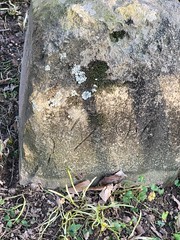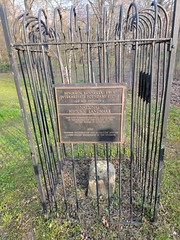Ding Zilin, organizer of the Tiananmen Mothers’ Group and her husband, Jiang Peikun, wrote this account of the loss of their son in the Tiananmen Massacres.

How Disaster Befell Jiang Jielian
by Ding Zilin and Jiang Peikun
Jiang Jielian, a 5 foot 11 inch tall handsome young man, was a sophomore in the section four of the middle school attached to Remin University of China. He was born on June 2, 1972 in Beijing. Martial law troops shot him to death in Muxidi at a little past 11 p.m. on the evening of June 3, 1989. He had turned 17 only a day before he was killed.
Jiang Jielian was born into an educated family. From his earliest years he was taught to love his country and to dedicated his life to serving it. His father, Jiang Peikun was the director and professor at the Institute of Aesthetics at Renmin University of China. His mother Ding Zilin was an associate professor in the same institute. We two had taught at university ever since we were young. Ding Zilin’s second paternal uncle, widely known in both China and abroad as one of the founders of geology in China, was the outstanding scientist Ding Wenjiang. Ding Wenjiang’s famous words “Always be prepared to sacrifice transient personal good for the eternal good of the entire humanity” were the family precepts that we taught our children.
Jiang Jielian was our youngest son. He had an elder brother and an elder sister but he was our only child from our second marriage. He grew up surrounded by the love of his parents and his brother and sister but was naturally generous, treating everyone kindly. He was also quite intelligent and talented. From elementary school all the way to high school he was nearly always at the top of his class in both character, scholarship and physical health as well. He always had among the best grades in his class. In the April 1989 mid term examination, the last examination he ever took, he got a score of 570 out of a total possible score of 600 – an average of 95 percent for each test – in the six subjects he tested in. He ranked third in his entire class of over 300 students. In May, because of his excellent grades, his school selected him to participate in the city Physics Olympiad. He hadn’t told us about this but did review his class material anxiously preparing for the Olympiad test. The three days before he was killed he had studied until two or three o’clock in the morning.
Jiang Jielian had a clear goal set for himself. He never hid that his heart was set on going to Peking University. The middle school of Renmin University of China was one of the key middle schools in Beijing. The middle school every year sent twenty of its top students to Peking University, Tsinghua University, The University of Science and Technology, Renmin University of China and other top schools without needing to take the entrance examination. With his usual good grades he could have his top choice of schools. He told me candidly, “I want to go to Peking University. Peking University is the cradle of democracy. I want to go to any of the science departments at Peking University.”
He followed the 1989 democracy movement from almost the very start. He showed great interest in personally participating. On April 15, 1989 when Hu Yaobang died, the first big character poster about it hung up on the Renmin University of China campus drew his interest. He often went to Renmin University and Peking University campuses to read the big character posters and to hear talks that students gave. On May 17 when the student hunger strike in Tiananmen Square reached its climax, he and several classmates actively organized Renmin University middle school students to participate in the million man march to support the hunger strike students in Tiananmen. That day after class ended at 4 p.m., over a thousand bicycles left the middle school. Each bicycle carried another student on the back. An army of over two thousand students rode from Renmin University Middle School to Fuxingmen and then formed ranks to march to Tiananmen, circle once around the Square and then back to Fuxingmen and home. Jiang Jielian’s bicycle was in the front ranks with a classmate riding on the back holding up high the middle school flag. When the long line of students marched from Fuxingmen to Tiananmen, he still marched at the first row of Remin University Middle School students. Together with another student they held a large banner supporting the university students’ action for justice. On the flag was written, “If you should fall, we keep up the fight!” (A female classmate who took part in that demonstration took a precious historical photograph of this scene. When she heard that Jiang Jielian had been murdered, she gave us the negative of the photograph.) He loved the red headband he wore on his forehead in the demonstration that day and so his family members put that red headband around his head at his funeral and when he was cremated.
After martial law was declared, he was even more anxious about the safety of the fasting students. Twice he went out by himself late at night without telling us. Once he went with the student disciplinary patrol team from the east gate of People’s University to Tiananmen Square. At dawn he rode the first bus alone back to school to go to class. The other time, he took advantage of us both being soundly asleep late at night to quietly sneak away on his bicycle to Liuliqiao to join with the crowd blocking military vehicles.
This time he also returned at dawn and as soon as he came in the door he told us excitedly that the PLA soldiers had indeed been tricked. He was very proud that he had become friends with a young PLA soldier. He told the soldier why the university students were fasting. The soldier whispered to him that they didn’t know why they had come. They had all be given 90 RMB traveling expenses. They were ordered not to read the newspapers or listen to broadcasts on the way over. Now they were surrounded and didn’t have anything to eat or drink. That evening Jiang Jielian gave the bread and soda that people in the crowd had given him to that young soldier to slake his hunger and used the only money he had on him – two RMB – to buy two pancakes from a vendor’s stall to fill his hungry stomach. When the hunger strike ended and turned into a sit-down strike, many students went back to school. Seeing that classes were about to be resumed, Jiang Jielian didn’t go out to support the students after that. After school he burrowed into his books to prepare for the Physics Olympiad.
June 3 was a weekend day. Jiang Jielian had been working hard on physics competition problems for three straight nights and was feeling exhausted. He wanted to take a good rest when all of a sudden everything changed that night. He was especially anxious when he saw on television the declaration of a state of emergency by the martial law troops. He kept asking his parents, “What can we do? What can we do? There are still so many students in Tiananmen.” His mother answered, “There is nothing we can do. The only thing that could help would be for all of Beijing to mobilize to protect the students in Tiananmen but there is no way to do that now. Now it is too dangerous to go outside. You mustn’t go there again.”
He insisted on going and criticized his mother for her cowardice. His father too, urged him not to go out, saying “If something should happen to you, your mother and I will be alone for the next halves of our lives.” He immediately answered, “If all fathers and mothers were as selfish as you, wouldn’t that be the end of the Chinese state and nation?” His father told him to stay at home and for his mother to watch him while he went out to look at what was going on. Mother locked the door after he went out and stayed at home with their son. But he was restless and still determined to go out. Mother spent two whole hours trying hard to convince him to stay. And argued with his mother for two hours.
He pinned his mother’s school emblem on his chest (he had lent his own Renmin University middle school emblem to a classmate and had lost his student ID at the demonstration), put two RMB and some coins into his wallet and comforted his mother, “I’ll go take a look, I’ll be back soon. If you are worried, when I get there (Tiananmen) I’ll call home right away from a pay phone.” He patted the school emblem on his chest as he said, “Now that I have this, they can’t say that I am just a scoundrel. The martial law troops won’t hurt me.” His mother still didn’t want to let him go. She advised, “You are just a middle school student. You aren’t of any use there.” On hearing this he said sternly, “The important thing is not ‘action’ but ‘participation’.” When he finished, his kissed his mother’s cheek gently and said “Farewell.” Then he tore away from his mother and dashed into the toilet, latched the door and went out the window.
Jiang Jielian left home at about 10:30 p.m. on the evening of June 3rd. At the east gate of Renmin University he encountered another student name Zhou and the two rode southwards on their bicycles. According to what that student who narrowly escaped death on that early morning of June 4 said, when the two of them got to Muxidi Bridge they saw a big crowd of people. When martial law troops started a dense strafing gunfire the two kids thought it was rubber bullets. The two hid north of the north entrance of the Muxidi subway, behind the long flower bed south of the tall building at No. 29 Fuxingmenwai Avenue.
A bullet hit Jiang Jielian in the back, went through his chest at an angle, and came out of his front collar. A bullet grazed the heel of his classmate’s foot. He heard Jiang Jielian say softly, “I may have been hit. You hurry ahead!” He squatted down and then fainted on the ground. Bright red blood soaked through his cream color T shirt. The people around him risked their lives to move him to the doorway on the north side of No. 29. Seeing that he was seriously wounded, they got a three wheeled cart and took him to the hospital for emergency treatment. Then, fearing that the cart was too slow, they put him into a small cab that they stopped along the way. Two people whose names we never found out put the already unconscious Jiang Jielian into the car and went with him to the hospital.
Jiang Jielian didn’t return that night and we couldn’t find him anywhere. We stood watch at the east gate of Renmin University. At a little past 6 a.m. on the morning of June 4, the classmate who had gone out with him came with his father to give us the news. As the cab had been full that classmate had been unable to go to the hospital with him so he only knew that the cab left the complex of buildings and drove north and didn’t know to which hospital he had been taken.
On the evening of June 4, the Beijing Children’s Hospital notified Renmin University of China authorities and asked them to send someone to identify and pick up the body. It turned out that the kind people in the crowd had taken Jiang Jielian to Children’s Hospital in Fuxingmenwai. He was among the first group of casualties sent for emergency treatment at the hospital. The hospital set up a provisional operating room but Jiang Jielian had stopped breathing before he got to the operating table. He was among the first to die in the city-wide slaughter. The hospital noticed the red school emblem on his chest and mistook him for a young teacher or administrative staff person at Renmin University and so they notified the school that evening. The emergency room physician said that he died with a peaceful and calm expression on his face. The university was able to determine by checking the badge serial number that it was Jiang Jielian whom they had been searching for.
At dawn on June 5, the university sent someone with Jiang Jielian’s elder brother in a car to the city Children’s Hospital. They took his remains to the Zhongguancun Hospital near Renmin University and put it in the freezer there. Then his elder brother and maternal uncle cleaned the bloodstains from his body and put on him the white shirt, soccer shoes, and the red and white Renmin University middle school sophomore students uniform that he used to love to wear. They put the red cloth headband that he was so proud of around his raven black hair as a sign that he had shed blood and given his life. At about 4 p.m. on June 5, over twenty people including Jiang Jielian’s parents, elder brother and sister, close relatives and friends and teachers went to that ten-odd square meter small room in the Zhongguancun Hospital to bid their last farewells. There were no flower wreaths, there was no funeral music, only sobbing and the wailing of his parents.
On the morning of June 7, the remains of Jiang Jielian, accompanied by many of his teachers from the Remin University middle school, and elder brother and sister, brother-in-law and others went down winding country roads to the Babaoshan Crematorium in the western suburbs of Beijing. With the dead on arrival at the hospital certificate from the Beijing Children’s Hospital the crematorium accepted his remains for cremation. Before the cremation, the people who had accompanied him to Babaoshan held a simple memorial ceremony, presenting wreaths of flowers and memorial banners. On one of them was written Being Patriotic is Glorious and signed by all the teachers and students of his middle school. The banner was draped over his body. A farewell letter from his mother (see appendix) was placed on his chest. On his head he still wore his red headband. Cremated together with him was the badminton racket he loved, the exercise band he worked out with every day, and the comb he had used to comb his thick, raven black hair. The crematorium personnel were sympathetic and understanding so they accepted everything.
When Jiang Jielian’s body was discovered at Beijing Children’s Hospital on the night of June 4, Renmin University immediately notified the authorities, via State Education Commission and the Beijing Municipal Communist Party Committee, layer after layer all the way to the General Office of the Communist Party Central Committee. From that day onwards, during those days, in the Chinese authorities’ internal distribution only daily report of the number of university students killed there was always at the end mentioning of the death of a middle school student who was the child of faculty members of Renmin University. That was Jiang Jielian. That is, he was the only middle school student officially acknowledged in writing to have been killed in the internal report of the Chinese authorities (although in fact he was not the only middle school student killed). Moreover, Beijing Daily on July 23, 1989 in its criticism of the Voice of Beijing broadcast station mentioned without naming the name that a junior from the Renmin University middle school had been killed (in fact it was sophomore) who had, seduced by the loudspeakers of the broadcast station, rushed out on the streets the night of June 3rd never to return home. This was yet another reference to Jiang Jielian.
Although openly published newspapers and internal distribution only brief reports mentioned the death of Jiang Jielian, ever since his cremation no level of the Chinese authorities or individual ever looked into his death much less contact his family in any way. The only exception was during the 1990 census when personnel from the Renmin University Census Office visited our home to verify and understand how Jiang Jielian had died.
After Jiang Jielian’s body was cremated, his ashes were secretly stored in his elder brother’s group dormitory for more than three months. On September 11, 1989, one hundred days after his murder, his parents took his ashes home and put them in an upright camphor wood cabinet in the form of a memorial tablet that his father had made. They put into the cabinet the things that he had loved while a student. On the face of the cabinet his father carved this memorial inscription:
During your short seventeen years
You lived your life like a real man
You died too like a real man
Your nobility and integrity
Will forever be etched in the everlasting memory of history.
You father and mother who will love you forever
September 11, 1989
June 15, 1991 in Beijing
Chinese text:
蔣捷連蒙難記
丁子霖 蔣培坤
蔣捷連是個個頭一米八二的英俊少年,中國人民大學附屬中學高二年級四班學生。他一九七二年六月二日出生於北京,一九八九年六月三日夜十一點多被戒嚴部隊槍殺於北京木樨地。遇難的前一天,他剛過十七周歲生日。
蔣捷連出生在一個知識份子家庭,從小便接受愛國獻身的良好家庭教育。父親蔣培坤是中國人民大學美學研究所所長、教授;母親丁子霖同為該所副教授。我們倆從青年時代起便一直在大學教書。其母的二伯父即是馳名中外的中國地質事業的創始人之一、卓越的科學家丁文江。丁文江的銘言——“為全種萬世而犧牲個體於一時”,已成為我們家庭教育後代的家訓。
蔣捷連在家裏是幼子,上有兄姐各一人,但實際上他是我們倆再婚後共同生的獨子。他自幼便在父母兄姐的寵愛下長大,但生性寬厚,能仁愛待人,且天資聰穎,從小學到高二,幾乎年年都是品學兼優的三好學生,成績一直名列前茅。在一九八九年四月間的期中考試中——也是他一生中參加的最後一次考試,六門課,總分六百分,他得五百七十分,平均每門九十五分,在全年級三百多人中名列第三。由於成績優異,五月間被學校選中,擬參加市奧林匹克物理選拔賽。此事他瞞著家人,只是在課後復習,緊張地做準備。遇害前三天,他連續開夜車直至深夜兩、三點才睡。
對於未來,蔣捷連的目標十分明確,他毫不掩飾自己對北大的嚮往與仰慕。人大附中是北京市一所著名的重點中學,每年應屆高中畢業生中的前二十名可以免試保送至北大、清華、科大、人大等著名高等學府。按他一貫的成績,可以自己選擇保送的學校。他曾坦誠地向我們表示,“我要上北大,北大是民主的搖籃,我願上北大的任何一個理科系。”
八九民運,幾乎從一開始,他就十分關切。一種強烈的參與意識在他身上明顯地凸現出來。一九八九年四月十五日胡耀邦去世,人大校園裏貼出第一批大字報便引起他的關注,他經常往來於人大、北大間看大字報,聽學生們講演。五月十七日天安門前大學生絕食進入高潮,他與班上數名同學積極組織人大附中學生參與了當天首都百萬人聲援天安門前大學生的遊行隊伍。這天下午四點以後,一放學,人大附中便出動了一千餘輛自行車,每輛車的後架上又都坐著一位同學,兩千多人的隊伍浩浩蕩蕩從人大附中騎到復興門,接著又列隊步行至天安門,繞廣場一周,再從原地返回。蔣捷連的自行車走在隊伍的最前面,車子後架上坐著高舉校旗的同學。隊伍從復興門向天安門行進時,他仍然走在人大附中隊伍的最前列,與另一位同學高舉聲援大學生正義行動的大橫幅,上面寫著:“你們倒下,還有我們!”(當時參加遊行的一位女同學拍下了這個珍貴的歷史鏡頭,她獲悉蔣捷連遇害,便把底片送給了我們)。他十分珍愛那天遊行時紮在額頭上的那根紅布條,所以後來向他遺體告別以及火化時,家人替他紮上了這根紅布帶。
戒嚴令發佈後,他更是放心不下絕食學生的安危。曾有兩次,他都背著我們深夜獨自外出,一次在人大東大門口隨大學生糾察隊去了天安門廣場,淩晨自己乘頭班公車趕回學校上課;另一次,也是深夜乘我們熟睡之際,悄悄騎自行車去六裏橋參加群眾堵截軍車的行列,這一次也是次日清晨才回的家,一進家門便興奮地告訴我們:果然解放軍戰士是受了蒙騙。他為自己與一小戰士交上了朋友而非常得意,他向戰士講述大學生絕食的緣由,戰士則悄悄告訴他:也不知幹啥來了,反正每人給九十元出差補助,一路上也不讓看報、聽廣播——現在被就地圍困得沒吃沒喝的。那一夜,蔣捷連把群眾給他吃的麵包、汽水都送給了那位小戰士,而他自己則用身上僅存的兩元錢,從個體攤販手裏買了兩套煎餅果子果腹充饑。直至學生停止絕食,轉為靜坐,大批學生返校,眼看複課在望,蔣捷連才不再外出聲援,課餘又埋頭於緊張的物理競賽的準備之中。
六月三日正是週末,蔣捷連連熬了三夜趕做物理競賽題,十分疲乏,本想好好休息,未料到了晚上形勢陡變。尤其當他看到電視裏戒嚴部隊的緊急通告,更是焦慮萬分,他一個勁兒地追問父母:“怎麼辦?怎麼辦呢?天安門廣場上還有那麼多學生哪!”母親回答:“沒有辦法。唯有北京全城市民傾城出動去保護天安門廣場上的學生,但現在已無法做到。外面太危險,你不要再外出了。”他執意非去不可,並批評母親怯懦。父親也勸阻他說:“你若出了事,我與你母親後半輩子只能形影相弔地過日子了。”他立即答道:“天下的父母都像你們這樣自私,國家和民族不就完了嗎?”父親還是把他留在家裏,讓其母親看住他,自己外出觀察形勢發展。母親把大門鎖上,陪他在家,但他坐立不安,非要出去不可,母親苦苦拉勸了兩個來小時。他把母親的紅校徽別在自己胸前(自己的人大附中校徽借給了同學,學生證則在遊行時丟失),又在小錢包裏裝了兩元錢和一些硬幣,安慰母親說:“我去看看,馬上就回來,你要是不放心,我一到(天安門)便去公共電話亭給家裏打電話。”邊說邊拍拍胸前的紅校徽說:“有了這,就不會說我是‘痞子’了,戒嚴部隊不會傷害我的。”母親還是不讓他走,並勸道:“你一個中學生,去了也沒有用。”他聽後立即正色作答:“重要的不在‘行動’,而在於‘參與’!”說畢,輕輕親吻了母親的面頰,說了一聲:“訣別吧!”便掙脫母親,沖進廁所,插上門栓,越窗而去。
蔣捷連離家的時候六月三日夜十點半左右,他在人民大學東大門口遇見一位同班周姓同學,兩人相伴騎車南行。據六月四日淩晨死裏逃生的那位同學講,兩人騎車至木樨地橋頭便見人如潮湧,待戒嚴部隊機槍子彈密集掃射過來時,這兩個孩子還以為是橡皮子彈呢。兩人躲在木樨地地鐵路北出口處以北,複外大街二十九號高層樓以南的那個長花壇後面,子彈射中蔣捷連的後背,斜穿透胸膛,從前領處出去,那位同去的同學的腳跟處則被子彈擦破了點皮。他聽蔣捷連還輕輕地對他說了一句:“我可能中彈了!你快先走吧!”說罷便蹲了下來,隨即昏倒在地,殷紅的鮮血浸透了他那件乳黃色的T恤衫。周圍群眾在彈雨中冒著生命危險把他抬到二十九號樓北側門洞下,看他傷勢嚴重,立即找來了一輛平板三輪車,把他運往醫院搶救,後又嫌車走得太慢,沿途截住一輛出租小汽車,由兩位至今不知姓氏的民眾,把昏迷不醒的蔣捷連抬上汽車,開往醫院。
蔣捷連徹夜未歸,也無處可以尋找,我們倆只得守候在人民大學東門口。六月四日清晨六點多鐘,同去的那位同班同學由其父陪同來到我們家報信。由於當時計程車內已坐有乘客,那位同學擠不進去,未能隨同前往醫院,所以只知小汽車穿過樓群往北開去,也不知去了哪家醫院。
六月四日夜晚,市兒童醫院通知中國人民大學校方去認領屍體。原來是好心的民眾把蔣捷連送往了地處復興門外的北京市兒童醫院,他是第一批被送往這家醫院搶救的傷患。醫院裏臨時搭起了手術臺,然而,蔣捷連在上手術臺前已停止了呼吸,他是Ji北京屠城中的第一批遇難者。院方根據他胸前別的是人民大學的紅校徽,誤以為他是人大的青年教工,所以在當晚便通知了校方。據院方搶救大夫說,死者面容安詳平靜,神態自若。校方根據校徽號碼毫無困難地確定他便是正在尋找中的蔣捷連。
六月五日清晨,人大校方派人與蔣捷連哥哥專車同往市兒童醫院,把他的遺體接到人民大學附近的中關村醫院,存放在該院的冰櫃內,並由他的哥哥及堂舅親自為他擦拭身上的血跡,換上生前常穿的心愛的白襯衫、足球鞋以及紅白相間的人大附中高二年級校服,那頭濃密的烏髮周圍則系上了那根他引以為自豪的紅布條——他為之獻出熱血和生命的標誌。六月五日下午四點左右,蔣捷連的父母、兄姐、親友、師長等二十來人在中關村醫院那間十幾平方米的小屋裏向他的遺體做了最後的告別。那裏沒有花圈,沒有哀樂,只有一片抽泣聲和父母的哀號。
六月七日的清晨,蔣捷連的遺體在人大附中多位老師以及他的兄長、姐夫等人的護送下,繞道鄉間小路,運到西郊八寶山火葬場,憑著市兒童醫院開具的“來院前已死亡”的證明,火葬場接受了遺體的火化。火化前,送行的人們在八寶山火葬場就地舉行了簡單的儀式,獻上了花圈和挽聯,挽聯上寫著:“愛國光榮”,落款為人大附中全體師生。這幅挽聯覆蓋在他的遺體上面,他貼胸安放了一封母親寫的送行信(見附錄),額頭上仍然保留著那根紅布帶子。隨同火化的,還有他最心愛的羽毛球拍和每天都要用的健身拉力器,以及梳理他那濃密烏髮的發刷。出於同情和理解,火葬場的工作人員接受下了全部東西。
六月四日夜間,蔣捷連的遺體在市兒童醫院一被發現,人民大學校方就立即通過國家教委和北京市委,層層上報,直至中共中央辦公廳。從那天起,在那些日子裏,中國當局內部情況簡報中每天通報大學生死亡人數時,尾端總掛有人大附中一名高中生、人大教工子弟,此人便是蔣捷連,也就是,他是中國當局在內部正式承認的並見諸文字的唯一的一名中學生(其實死亡的中學生又何止他一人)。不僅如此,一九八九年七月二十三日《北京日報》在批判“北京之音”廣播台的文章中又不點名的提到人大附中有個高三學生(實為高二)受廣播台高音喇叭的蠱惑於六月三日夜間沖上街頭再也沒有回家……,此處說的仍然是蔣捷連。
儘管公開報紙、內部簡報多次提到蔣捷連身亡的事,但自從火化以後,除了於一九九零年人口普查時,人大校內人口普查辦公室曾有人來家中核查瞭解蔣捷連死亡經過外,中國當局方面就再無任何一級組織或任何個人出面問過此事,更談不上與家屬有過任何接觸或聯繫了。
蔣捷連遺體火化後,骨灰在其兄長的集體宿舍內秘密存放了三個來月,一九八九年九月十一日,當他遇難百日之際,父母將其骨灰迎回家中,安置于其父親自製作的一個紀念碑式的樟木豎櫃內。櫃內同時存放他生前求學時期的心愛之物。櫃的正面其父親自刻下了如下碑文:
這短暫的十七年
你像真正的人那樣活著
又像真正的人那樣死去
你將以人性的高貴與完整
刻印在歷史的永恆記憶裏
——永遠愛你的爸爸媽媽,一九八九•九•十一
1991年6月15日完稿於北京



